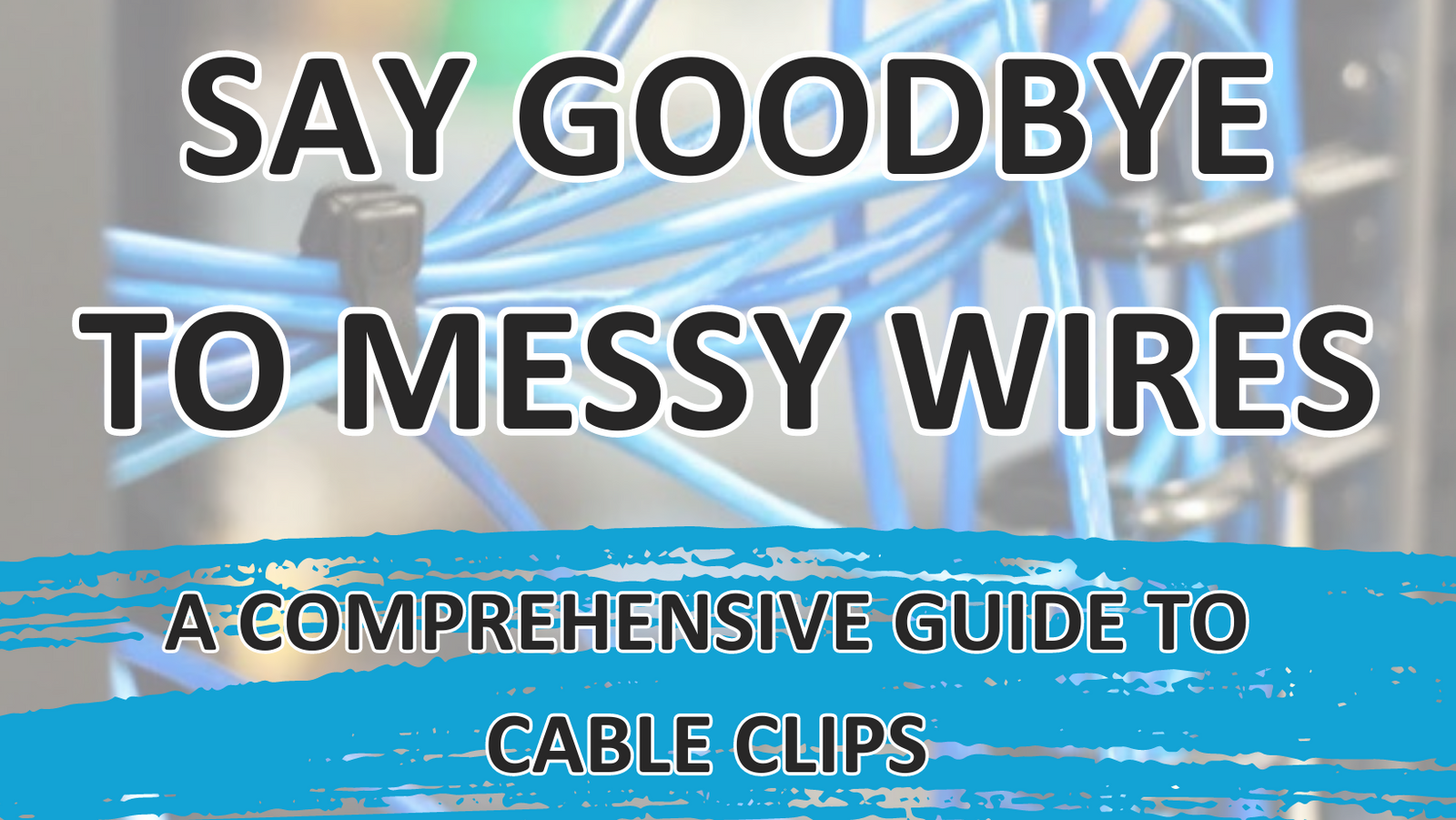- Home
- Products
- Media Gallery
- How it Works
- Blog
- About us
- Sign in
-
United States (USD $)
- Home
- Products
- Media Gallery
- How it Works
- Blog
-
About us
Attraction or Destruction? The Truth About Magnets and Their Impact on Everyday Objects
May 19, 2023
Welcome to our article on the impact of magnets🧲 on credit cards and other electronic devices.
In today's world, where we heavily rely on credit cards and other electronic devices for our daily transactions and activities, it's essential to understand how magnets can affect them.
Key Takeaways
- Magnetic Strip Technology: Magnetic strips on cards store data but are vulnerable to demagnetization and scratches, making them less secure than EMV chips.
- Demagnetization: Demagnetization can render a card unreadable; avoid magnets and scratches to prevent it.
- Magnet Damage: Magnets can affect credit cards, phones, and batteries, but typical household magnets won't cause permanent damage. Be cautious with strong magnets.
In this article, we will explore the following topics:
👉 Magnetic strip technology
👉 Demagnetization
👉 What can magnets damage
👉How to protect your cards
Let's dive in and learn more!!!
Magnetic Strip Technology 🧲💻

Magnetic strip technology is the most common type of credit card technology used today. Here are some key points to understand how it works:
How it works: A magnetic strip is a strip of magnetic material that is laminated onto a plastic card. The strip contains tiny iron-based magnetic particles in a plastic-like binder. When the strip is swiped through a card reader, the magnetic particles are arranged in a specific pattern, which is read by the reader.
Information stored: The magnetic strip stores three tracks of data🪪-- track 1, track 2, and track 3. Each track can hold different types of data, including account numbers, names, and expiration dates📆.
Vulnerabilities: Magnetic strips are vulnerable to demagnetization and scratch damage🧲 , which can make the data unreadable. They are also less secure than other technologies, such as EMV chips.
Replacement: If a magnetic strip 🧲 is damaged or no longer functioning, a replacement card will need to be issued.
Overall, magnetic strip🧲 technology has been a reliable and convenient option for many years. However, as technology continues to advance and security concerns grow, other options such as EMV chips are becoming more popular.
Discover Where You Can Use Your Old School Card from People Insight

Upon analyzing the Reddit comments, it appears that the post focuses on providing valuable information to users who still use magnetic stripe payment cards. The post outlines the types of stores, including gas stations, grocery stores, and retail stores, where magnetic stripe payments are still accepted. Surprisingly, major retailers such as Home Depot, Lowe's, and Walmart still allow magnetic stripe payments, which surprised many users. Moreover, the post reveals that mobile payment services like Samsung Wallet have the highest usage rate for magnetic stripe payments.
This information can be particularly useful for individuals who have not yet updated their payment methods or encounter difficulties using other payment methods. If you found this discussion helpful, you can also learn how to protect your cards from demagnetization in the following section.
Demagnetization🔌🧲
When a credit card 🪪is demagnetized, it can no longer be read by a card reader. Demagnetization can happen due to various reasons, including exposure to magnets or scratches on the magnetic strip. Here's what you need to know about demagnetization:
Signs of Demagnetization:
- Difficulty swiping the card
- Multiple attempts needed to read the card
- Error messages when using the card
Causes of demagnetization:
- Exposure to magnets: Exposure to magnets, including the magnets in cell phone holders, wallets, and other electronic devices⚡.
- Repeated swiping: Repeated swiping, which can wear down the magnetic strip over time. 🔄
- Magnets: Strong magnetic fields can erase the data stored on a magnetic strip.
- Scratches: Even small scratches can damage the strip and cause it to malfunction, disrupt the magnetic field and prevent the card from being read. 🤕
- Heat: High temperatures can demagnetize the strip over time.
- Wear and Tear: Over time, the strip can wear out due to regular use.
Effects of demagnetization:
- Inability to complete transactions, as the card reader cannot read the card. 💳
- Potential for fraudulent activity, as the cardholder may need to provide sensitive information to complete a transaction without their card. 🚫
- The need for a replacement card, which can be a hassle and may come with additional fees. 💸
Preventing demagnetization:
- Store credit cards separately from magnets, including cell phone holders and wallets. 🔍
- Keep credit cards away from items that could scratch the magnetic strip. 🚫
- Use a card protector or wallet with RFID blocking technology to protect against unauthorized scanning. 🔒
- Store cards away from magnetic fields, including cell phone holders, magnets, and other electronic devices.
- Keep cards in a wallet or cardholder to protect them from scratches and wear.
- Use chip-enabled cards instead of magnetic strip cards, as they are less susceptible to demagnetization.
It is important to take precautions to prevent demagnetization. A demagnetized credit card🪪 can cause a lot of inconveniences. However, if your credit card does become demagnetized, it's relatively easy to get a replacement card from your issuer.
Magnet Damage💔🧲

Magnets can cause damage to various items, including credit cards, phones, and batteries. Here's what you need to know about magnet damage:
Credit Cards:
- Magnets can erase the data on a magnetic stripe, rendering the card useless.
- The strength of the magnet required to damage a card depends on the card's magnetic stripe technology.
- EMV chip cards are not susceptible to magnet damage.
Phones:
- Magnets can interfere with a phone's compass, causing navigation issues.
- However, modern smartphones are not typically susceptible to permanent magnet damage.
Batteries:
- Magnets can cause a battery to become demagnetized, leading to reduced performance.
- However, it is unlikely that a typical household magnet would cause permanent damage.
Airpods:
- Magnets can damage the charging case, which has magnets that hold the earbuds in place.
- Strong magnets may interfere with the AirPods' functionality.
Wireless Charging:
- Magnets can interfere with wireless charging technology, causing slower charging or failure to charge.
- However, most phone cases with built-in magnets are designed to avoid interference with wireless charging.
Electronics:
- Magnets can cause damage to hard drives, causing data loss.
- Magnets can also interfere with other electronic components, causing malfunction.
Overall, while magnets🧲 can cause damage to certain items, it's unlikely that typical household magnets will cause permanent damage to modern electronic devices. However, it's still best to avoid exposing your devices to magnets whenever possible..
Scratch Damage💥🔪
Another common type of damage that credit cards can experience is scratch damage. This can happen when the card comes into contact with rough or abrasive surfaces, such as keys or coins in a pocket or purse. While this type of damage is not as serious as demagnetization or magnet damage, it can still affect the usability of the card. Here are some things to keep in mind:
- Some common causes of scratch damage include keeping the card in the same pocket or compartment as keys or coins or allowing the card to rub against other cards or surfaces in a wallet or purse.
- You can check for scratch damage by inspecting the surface of the card for any visible marks or blemishes.
- To protect your card from scratch damage, consider keeping it in a separate compartment or sleeve in your wallet or purse. You can also consider using a protective case or cover for your card.
- If your card becomes scratched to the point where it affects its usability, you can contact your card issuer to request a replacement card. In some cases, they may charge a fee for this service.
By taking a few simple precautions❌, you can help prevent scratch damage to your credit card🪪 and ensure that it continues to function properly when you need it..
Phone Holders and Wallets📱👝

Many people carry their credit cards🪪 and smartphones together in their pockets or bags, which can increase the risk of damage or demagnetization. However, there are several ways to protect your credit cards from phone holders and wallets:
- Use a dedicated cardholder: Many retailers offer cardholders specifically designed to protect credit cards from demagnetization and scratches.
- Keep your phone and credit cards separate: Store your phone and credit cards in separate compartments in your bag or wallet.
- Consider a phone case with a cardholder: Some phone cases have built-in cardholders that keep credit cards away from the phone's magnetic field.
- Choose a wallet with RFID blocking technology: RFID-blocking wallets protect your cards from electronic theft and damage from phone holders.
It is important to note📋 that while these methods can reduce the risk of damage or demagnetization, they are not foolproof. It's still possible for credit cards to become damaged or demagnetized in certain situations such as exposure to strong magnetic fields or scratching against rough surfaces..
Replacement Cards 🔁💳
Occasionally, despite taking the utmost care of your credit card, mishaps can occur, causing irreparable damage. In such situations, you may have to request a replacement card from your bank or credit card issuer. Here are a few important things to consider:
- Contact your bank or credit card issuer as soon as possible to report a damaged card and request a replacement..
- Most banks and credit card issuers will charge a fee for a replacement card, so be prepared for that expense.
- Replacement cards may take a few days to arrive, so plan accordingly and be patient.
- While waiting for your replacement card, you may need to use alternative payment methods, such as cash or a different credit card.
- When you receive your replacement card, activate it immediately and destroy the damaged one to prevent any further misuse.
Properly maintaining your credit card is crucial to avoid the inconvenience and cost of having to replace it. Nevertheless, mishaps can occur, and it's vital to understand the necessary steps in the event that your card is damaged. It's important to contact your bank or credit card issuer as soon as possible and adhere to their guidelines to acquire a replacement card quickly.
Wrapping Up👋🎉
To ensure smooth financial transactions, taking good care of your credit card is crucial. By familiarizing yourself with the potential damages that may arise, you can take preemptive measures to safeguard your card.. Using a phone holder or wallet can prevent scratches and demagnetization while being cautious with your card and avoiding exposure to magnets can prevent damage.. If your card gets lost or damaged, it's essential to inform your issuer immediately to obtain a replacement.. With these tips, you can protect your credit card and avoid unwarranted hassles... 🛡️💳💪
For further insights into magnets, delve deeper by exploring here: Magnetic Materials Demystified: A Comprehensive Guide on Where Magnets Stick
Common Questions 🤔❓

If you're still seeking clarity on credit card damage, take a look at these frequently asked questions:
Will magnets🧲 ruin Credit Cards?
Magnets can damage the magnetic stripe on credit cards and render them unreadable, but it's unlikely that a standard fridge magnet or phone holder would have enough magnetic force to cause permanent damage. However, strong magnets such as those used in MRI machines or industrial equipment can potentially cause damage to credit cards. It's always best to keep credit cards away from strong magnets and magnetic fields to avoid any risk of damage.
Will magnets ruin phone?
Strong magnets can potentially damage certain components of a phone, such as the hard drive or the screen, depending on their strength and how close they are to the device. However, everyday use of a phone near magnets like those found in phone holders and wallets is unlikely to cause damage. It is always best to keep your phone away from strong magnets and magnetic fields to avoid any potential damage.
Will magnets ruin Batteries?
A: Magnets can affect batteries in certain situations, but it depends on the type of battery. Alkaline and lithium batteries are not significantly affected by magnets, while rechargeable batteries such as nickel-cadmium (NiCad) and nickel-metal hydride (NiMH) can be damaged or even lose their charge when exposed to a strong magnetic field for an extended period of time. It's generally best to avoid exposing any type of battery to strong magnets to prevent any potential damage.
Will magnets ruin airpods?
Airpods contain magnets as part of their design, so exposure to external magnets is not likely to ruin them. However, strong magnets may cause some interference with the Airpods' wireless connection or speakers. It is recommended to avoid exposing them to strong magnetic fields as a precaution.
Will magnets ruin wireless charging?
It depends on the strength and placement of the magnets. If the magnets are too strong and placed too close to the wireless charging device, they may interfere with the charging process or damage the charging components. It's generally recommended to keep magnets away from wireless charging devices to avoid any potential damage.
Will magnets ruin electronics?
Magnets can potentially damage or interfere with electronics, depending on the strength and proximity of the magnetic field. Strong magnets, such as neodymium magnets, can cause permanent damage to electronics, while weaker magnets may only cause temporary interference. It's important to keep magnets away from sensitive electronic devices such as hard drives, credit cards, and pacemakers to avoid any potential damage or malfunction.
Can a scratched credit card still be used?
It depends on the extent of the damage. Minor scratches usually don't affect the magnetic strip or chip, but deep scratches can cause problems. If your card is severely scratched, it's best to get a replacement..
What should I do if my credit card is demagnetized?
If your card gets demagnetized, don't worry! Just contact your credit card issuer and request a replacement. Only specialized machines can magnetize a card, and the issuer embeds secrets that only they can manage for security purposes."
Is it safe to keep my credit card in a phone holder or wallet?
Yes, it's generally safe to keep your credit card in a phone holder or wallet as long as the holder or wallet does not contain any magnets. If your phone holder or wallet does have magnets, it's best to keep your credit card in a separate pocket or sleeve...
Can a credit card be damaged by a card reader?
It's possible for a credit card to be damaged by a card reader if the reader is dirty or damaged. However, this is rare. If you're concerned about the cleanliness or condition of a card reader, you can try using a contactless payment method instead..
How do I request a replacement credit card?
You can request a replacement credit card by contacting your credit card issuer. Many issuers allow you to request a replacement card online or through their mobile app. You can also call the issuer's customer service number to request a replacement.
Leave a comment
Comments will be approved before showing up.
Also in Cloop Blog

Say Goodbye to Messy Wires: A Comprehensive Guide to Cable Clips
August 20, 2023
This article provides a comprehensive guide on cable clips, including types of cable clips, how to attach cables to a wall without nails, choosing the right size cable clip, proper cable clip installation, and references for further reading. It also includes practical tips, anecdotal evidence, and unique content to engage readers. The article aims to help readers organize their cables and improve the aesthetics and functionality of their spaces.

Supercharge Your Daily Commute: Maximize Productivity with These Game-Changing Tips
August 20, 2023
Magnetic cable ties are a convenient and efficient solution for organizing and managing cables during your daily commute. They simplify cable management, save time and effort, and offer reusability. These ties are versatile and can be used for various applications beyond cable management. They are durable, safe, and have an innovative design. In comparison to traditional cable ties, magnetic cable ties offer advantages such as reusability, adjustability, safety, versatility, durability, cost-effectiveness, and a sleek appearance. By incorporating magnetic cable ties into your daily routine, you can enhance productivity and optimize your commute experience.

Unleash Cable Bliss with Magnetic Cable Ties: Key Features and Benefits Revealed!
August 20, 2023
In this blog post, we delve into the world of magnetic cable ties and explore their remarkable features and benefits. These innovative tools offer a solution to the perennial problem of tangled cables, providing a convenient and secure way to keep your cords organized. From their strong magnets and quick lock/release mechanism to the cable passage design that ensures cables stay attached, magnetic cable ties are a game-changer. We also provide practical tips for cable bliss, such as storing cables without tangling and using zip ties effectively. Testimonials from satisfied users add a personal touch, and we offer ideas for creating your own cable oasis. Say goodbye to cable chaos and welcome a tidier and more organized life with magnetic cable ties.
Sign up to get the latest on sales, new releases and more…

